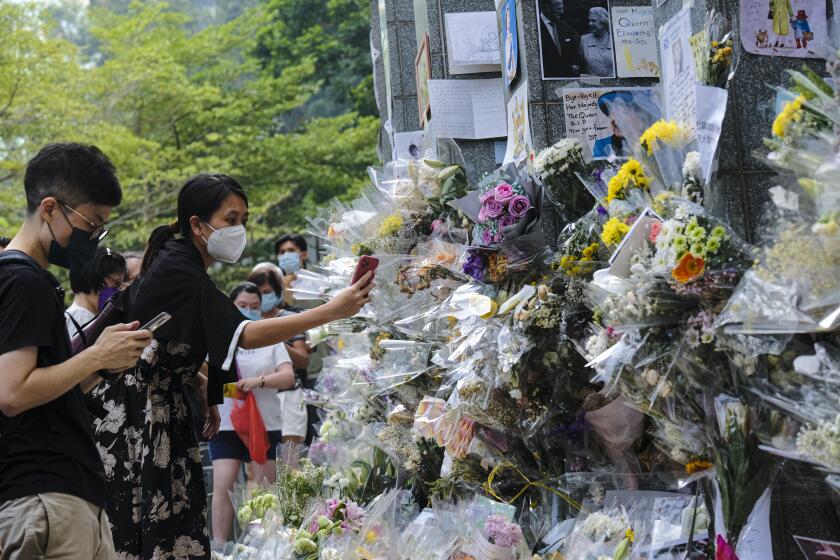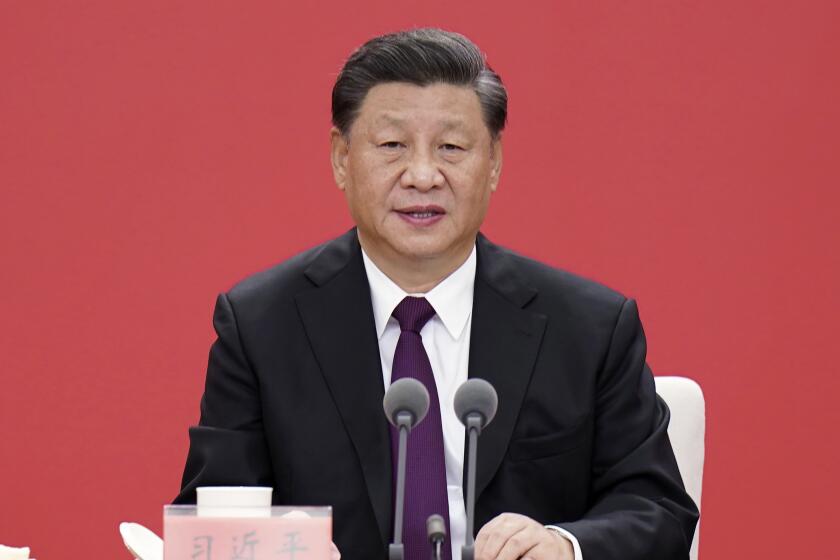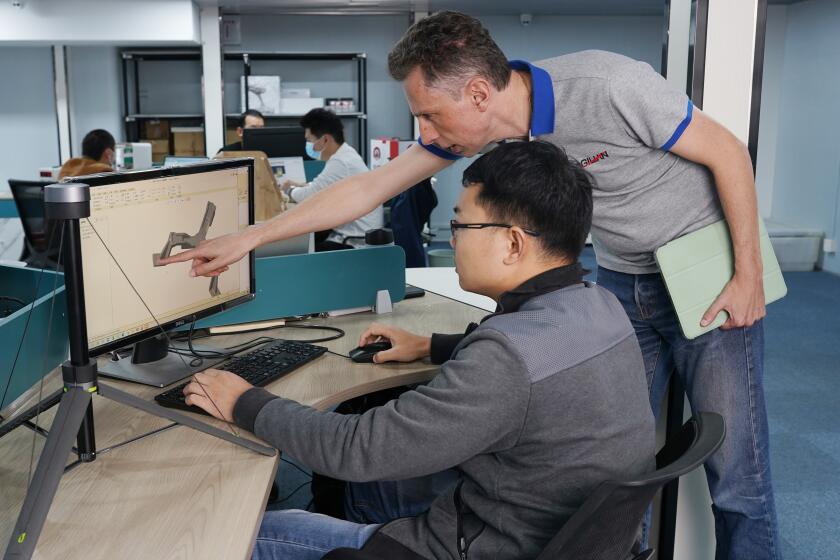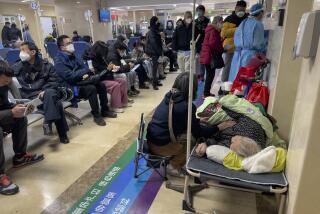Quarantine bus crash that killed 27 spurs outcry over China’s ‘zero COVID’ policy
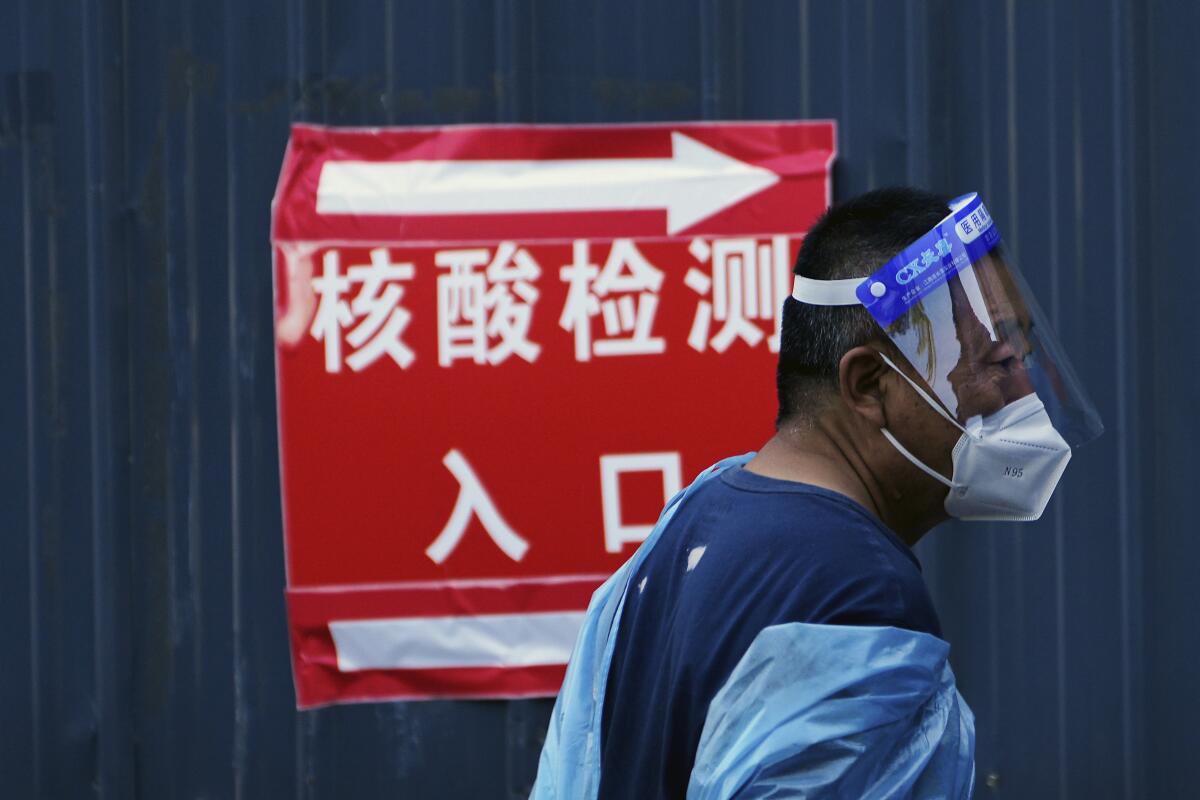
- Share via
TAIPEI, Taiwan — A nighttime bus crash that killed 27 people in southwest China this week has set off a storm of anger online over the harshness of the country’s strict COVID-19 policies.
The initial police report did not say who the passengers were and where they were going, but it later emerged that they were headed to a quarantine location outside their city of Guiyang, the capital of Guizhou province.
The bus with 47 people on board crashed about 2:40 a.m. Sunday. City officials announced many hours later that the passengers were under “medical observation,” confirming reports that they were being taken to quarantine.
Following public anger, Guiyang fired three officials in charge of Yunyan district, where the residents had been picked up, the provincial government said Monday. Guiyang’s deputy mayor apologized at a news conference, bowing and observing a moment of silence.
Online, many wondered at the logic behind transporting people outside Guiyang, accusing the government of moving them so that the city would no longer report any new cases.
“Will this ever end? On the top searches [on social media], there are all sorts of pandemic-prevention situations every day creating unnecessary panic and making people jittery,” one person wrote. “Is there scientific validity to hauling people to quarantine, one car after another?”
In former British colony of Hong Kong, death of Queen Elizabeth II prompts nostalgia for days before Beijing’s rule took an authoritarian turn.
Guiyang officials had announced that the city would achieve “societal zero COVID” by Monday, one day after the crash.
The phrase means that new infections are found only among people already under surveillance — such as those in a centralized quarantine facility or who are close contacts of existing patients — and the coronavirus is no longer spreading in the community.
China has managed the pandemic through a series of measures known as “clearing to zero,” or “zero COVID,” maintained through strict lockdowns and mass testing.
The approach saved lives before vaccines were widely available, as people refrained from attending public gatherings and wore masks regularly. However, as other countries have opened up and loosened some of the most onerous restrictions, China has held steadfast to its zero-COVID strategy.
China’s economy is slowing and its population is aging. Will that prompt its leaders to take risks now, before their power declines?
While China has cut down its quarantine time for overseas arrivals and said it would start issuing student visas, the policy remains strict at home. Officials are concerned about the potential death toll and the impact any loosening would have on the country’s stretched medical system.
Zero COVID also has become a political issue, and at one point was celebrated by many Chinese as signifying the superiority of their country over the U.S., which has had more than 1 million COVID deaths.
Chinese President Xi Jinping has cited China’s approach as a “major strategic success” and evidence of the “significant advantages” of its political system over Western liberal democracies.
Yet, even as other countries open up, the humanitarian costs of China’s pandemic approach have grown.
Earlier this year in Shanghai, desperate residents complained of being unable to get medicines or even groceries during the city’s two-month lockdown, while some died in hospitals from lack of medical care as the city restricted movement. Last week, residents in the western region of Xinjiang said they went hungry under a lockdown of more than 40 days.
According to FreeWeibo, a website that tracks censored posts on the popular social media platform, three of the top 10 searches on Weibo were related to the bus accident.
Many focused on images of the bus shared by social media users. One photo showed the bus after it had been retrieved from the accident site. Its roof was crushed. Another photo allegedly showed the driver decked out in a full white protective suit.
Users online questioned how a driver could see properly when his face was covered up, and why he was driving so late at night. Many comments were censored, but some that expressed discontent with the current approach to the pandemic did remain up.
First tariffs, then COVID, now worries of war. Multinational companies have more reasons than ever to get out of China — if they can.
“I hope that the price of this pain can push for change faster, but if it’s possible, I don’t want to pay such a high price for such change,” said the comment with the most likes on an online report about the accident by state broadcaster CCTV. “Condolences.”
One of the passengers on the bus said everyone in her building had been taken for central quarantine, according to a report by Caixin, a business news outlet. Yet her apartment building had not reported a single case, according to a friend who shared their text conversation with Caixin.
Another popular comment quoted a proverb: “These human lives are like straw.”
On Tuesday, Guizhou reported 41 new coronavirus cases in the entire province. The province has been on high alert in the last few weeks after discovering one case at the end of August. It has locked down its capital city, using the euphemistic “quiet period” to describe the move, which means people are not allowed to leave their homes.
More to Read
Sign up for Essential California
The most important California stories and recommendations in your inbox every morning.
You may occasionally receive promotional content from the Los Angeles Times.
